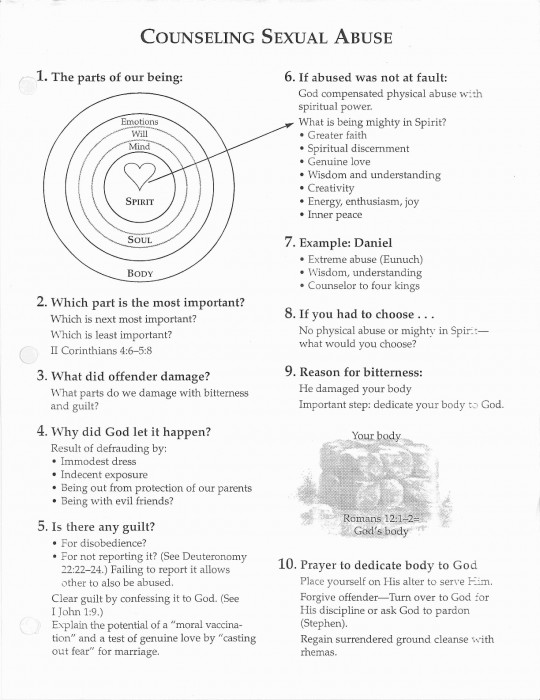For new readers: this post is part of a regular blog feature, where I read through influential books on Christian living. The beginning of the series covering Tim LaHaye’s How to Win Over Depression is here; you can also read through my series on Helen Andelin’s Fascinating Womanhood, John and Stasi Eldredge’s Captivating, Mark and Grace Driscoll’s Real Marriage, and Rob and Kristin Bell’s Zimzum of Love.
~~~~~~~~~
These two chapters were repetitive, so I’m going to do my best not to rehash things I’ve already commented on. A few things jumped out to me on this reading of “How to Overcome Self-Pity,” especially one thing in particular:
Facing self-pity as a sin is the initial step toward victory over this cruel slave-driver … instead of commiserating with yourself and blaming other people for the insult, injury, rejection, or tragedy, face self-pity squarely as a giant mental sin that will destroy you. (114)
I’ve mentioned before that when Tim is talking about “self-pity” he uses very similar language as when evangelicals start talking about “bitterness,” and this passage is a good example of that. In recent conversations about the Duggars, many people have pointed out that any “counseling” Josh’s victims received would have been accompanied with a heavy dose of the sin of bitterness is worse than his attacking you– after all, bitterness damages your soul and mind. Anyone who thinks that thought only exists in Christian fundamentalism need to look no farther than this book, which is about as mainstream evangelicalism as you can get. I mean, Nicolas Cage starred in a movie based on Tim LaHaye’s books.
The most frustrating thing is that Tim never comes right out and says what he means. He talks about “injury” and “tragedy,” and those words cover up a multitude of horrific nightmares the likes of which he will probably never experience. Tim would look Josh’s victims in the face and tell them that they need to “confess the sin of self-pity” for the lingering affects of severe childhood trauma. He would, all while never once acknowledge exactly what the “tragedy” actually is.
However, he has to breeze over exactly what the “tragedies” are that befall people, because the crux of his advice in “Depression and Your Mind” is to “forget those things which are behind.” It’s a lot easier to leave behind some nebulous “tragedy” than it is to forget the fact that you’ve been raped over and over again.
Interesting fact: I followed that advice doggedly. I wholeheartedly threw myself into forgetting that I’d ever been abused or raped. I did it, rather successfully, for four years. And then I started having night terrors and panic attacks. It wasn’t until I was able to process what I’d been through, to name it for exactly what it was and to start talking through it, that the night terrors and the panic attacks started to subside. “Forget those things which are behind” flies in the face of what we know about how to heal from trauma.
One hilarious thing in the chapter “How to Overcome Self-Pity” is when Tim references a story about Moses, found in Number 11.
During the course of his prayer, which began in anger and progressed in self-pity, Moses became so depressed that he actually asked God to let him die. Poor Moses! Resenting the clamor of the people and his leadership, he disregarded God’s supernatural supply of his needs.
Specifically, Tim has “Numbers 11:11-15” as the citation for this story. Here’s what God does in verses 16-17:
The Lord said to Moses: “Bring me seventy of Israel’s elders who are known to you as leaders and officials among the people. Have them come to the tent of meeting, that they may stand there with you. I will come down and speak with you there, and I will take some of the power of the Spirit that is on you and put it on them. They will share the burden of the people with you so that you will not have to carry it alone.
If “self-pity” is what Tim thinks Moses was experiencing in verses 11-15, and “self-pity” is a sin, then what in the world is God doing responding to this prayer with “you’re right, you’ve got too much on your plate, let me help you out”?
Just an idle question.
Chapter ten, “Depression and Your Mind,” can be summed up thusly: Tim thinks all we need to do is imagine our depression away. We just have to constantly tell ourselves that God loves us and BAM! depression cured (129). It’s also a quick summary of everything else he’s said so far, so we can just move on with our lives for the day.
Although, of the six examples he includes this chapter, four are about women, and involve 1) obesity, 2) weeping, 3) menstruation, and 4) menopause. Because of course.




